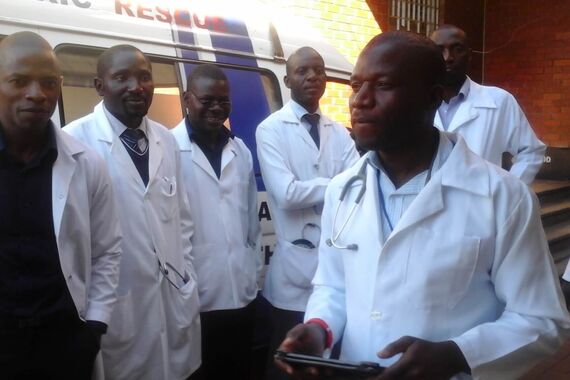About Us
Our Teams, Our Work, and Our History
History
The Heidelberg Institute of Global Health has existed for the past six decades. It was founded in 1962 by Helmut Jusatz as the health wing of the South Asia Institute of Heidelberg University to focus on medical geography.
Hans Jochen Diesfeld succeeded Jusatz in 1978. Following his expertise in tropical medicine and a passion for public health in low- and middle-income countries, the institute was renamed as Department of Tropical Hygiene and Public Health. Under his leadership, the first non-consecutive Master of Science in a medical field in Germany was established in 1990. Though there have been several improvements and additions, it still offers postgraduate training to date.
A large federally funded research focus on tropical medicine brought the natural (biochemistry, molecular biology) and clinical (paediatrics) sciences of the university, clinicians and public health specialists together and paved the foundation of a long-term interdisciplinary cooperation around the topic of tropical medicine and public health in Heidelberg, with the institute as the hub. This grant offered two chair opportunities in parasitology, and tropical hygiene and public health with two young research groups.
Prof. Dr. Rainer Sauerborn was hired in 1997 from Harvard University as a successor to Diesfeld. Shortly into his leadership, the institute was awarded a Special Research Center (SFB): Control of Tropical Infectious Diseases funded by the German Research Foundation (DFG). It was in a way an extension and intensification of the previous research focus. The research groups included were the European Molecular Biology Lab (EMBL) and the German Cancer Research Center (DKFZ), both situated in Heidelberg. The SFB was concluded in 2011 after three successful three-year evaluations.
In 2002, Heiko Becher, an epidemiologist and deputy of the institute set up a doctoral school in epidemiology with the institute as the hub of a university-wide cooperation which included also the German Cancer Research Center. Later, Prof. Dr. Rainer Sauerborn established an international doctoral school together with the Karolinska Institute (Stockholm) and Umeå University in Sweden to offer an international PhD programme in global health.
In 2016, Prof. Dr. Dr. med. Till Bärnighausen became the new Director of the institute. As a Humboldt Professor, he developed the former Heidelberg Institute for Public Health into a research facility for global health - the first of its kind in Germany. Prof. Dr. Dr. med. Till Bärnighausen is primarily concerned with the evaluation of health intervention and treatment programs.In August 2018, the institute name was changed from Heidelberg Institute of Public Health to Heidelberg Institute of Global Health (HIGH).



